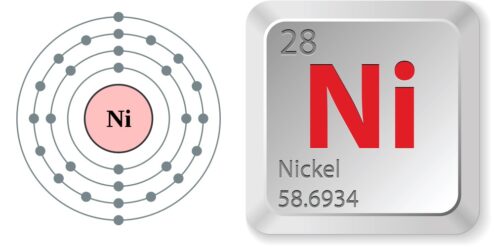Nickel is a naturally occurring element found in various foods and the environment. While it’s essential in small amounts for optimal health, excessive intake can lead to nickel allergy or systemic nickel allergy syndrome (SNAS). Dairy products, including Greek yogurt, are among the foods that people often question regarding their nickel content. This article aims to shed light on the nickel content in Greek yogurt and its impact on overall nickel consumption.
Understanding Nickel in Foods
Nickel is present in varying amounts in all foods. The concentration of nickel in food depends on the nickel content of the soil where the food is grown or the water where it’s sourced. Nickel can also be introduced to food during processing or cooking, especially when using stainless steel utensils. While most people can tolerate dietary nickel without any adverse effects, some individuals are sensitive to it and may experience symptoms like skin rashes, itching, and gastrointestinal issues upon ingestion of nickel-rich foods.
Nickel Content in Dairy Products
Dairy products generally contain low levels of nickel. The nickel content in milk and dairy products is mainly influenced by the nickel content in the feed consumed by the cows. However, the amount of nickel in dairy products can increase during processing, especially when using equipment made of nickel-containing alloys. Therefore, the nickel content in dairy products can vary depending on the brand and the manufacturing process.
Is Greek Yogurt High in Nickel?
Greek yogurt, like other dairy products, typically contains low levels of nickel. However, the exact amount can vary depending on factors such as the type of feed consumed by the dairy cows, the manufacturing process, and the use of nickel-containing equipment during production. It’s also worth noting that Greek yogurt is often strained to remove whey, which may further reduce its nickel content. Therefore, unless you have a diagnosed nickel allergy or sensitivity, consuming Greek yogurt should not contribute significantly to your overall nickel intake.
Comparing Greek Yogurt to Other Dairy Products
When compared to other dairy products, Greek yogurt tends to have a similar or slightly lower nickel content. This is largely due to the straining process, which removes whey and potentially reduces the nickel content. However, the nickel content in Greek yogurt, like other dairy products, can vary depending on the brand and manufacturing process. Therefore, it’s recommended to check the product label or contact the manufacturer for specific information.
How to Reduce Nickel Intake from Greek Yogurt
If you have a nickel allergy or sensitivity and want to continue consuming Greek yogurt, there are a few steps you can take to minimize your nickel intake. Firstly, opt for organic Greek yogurt, as organic dairy cows are typically fed with grass and hay, which have lower nickel content compared to other types of feed. Secondly, choose brands that use nickel-free equipment during production. Lastly, consume Greek yogurt in moderation, as part of a balanced diet.
The Overall Impact of Greek Yogurt on Nickel Consumption
In conclusion, Greek yogurt is not a significant source of dietary nickel. Unless you have a diagnosed nickel allergy or sensitivity, consuming Greek yogurt should not significantly affect your overall nickel intake. However, if you are sensitive to nickel, it’s recommended to monitor your consumption of Greek yogurt and other potential sources of dietary nickel, and consult a healthcare professional for personalized advice.
While Greek yogurt contains some amount of nickel, it’s not considered a high-nickel food. For most people, consuming Greek yogurt should not pose any risk in terms of nickel exposure. However, individuals with a nickel allergy or sensitivity should be mindful of their overall dietary nickel intake, including from Greek yogurt.
Per approfondire:
- Nickel Allergy – Mayo Clinic: This link provides comprehensive information about nickel allergy, including symptoms, causes, and treatment.
- Nickel in the Human Diet – NIH: This article from the National Institutes of Health discusses the role of nickel in the human diet and its potential health effects.
- Nickel Content in Food – ScienceDirect: This scientific article provides a detailed analysis of the nickel content in various foods.
- Greek Yogurt Production – ScienceDirect: This article provides insight into the production of Greek yogurt, which can affect its nickel content.
- Systemic Nickel Allergy Syndrome – NIH: This link provides information about systemic nickel allergy syndrome, a condition related to excessive nickel intake.


